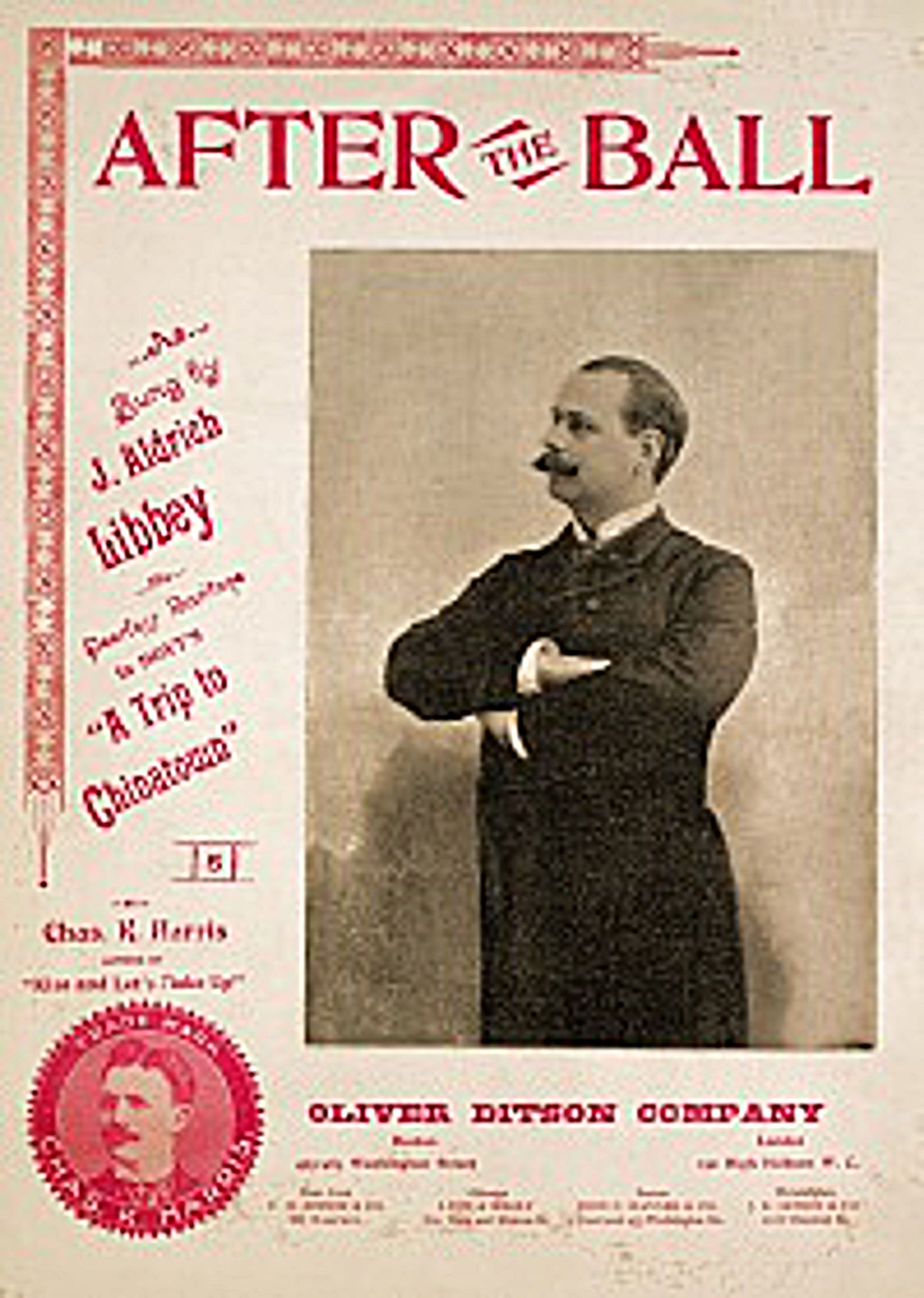After the Ball (song)

After the Ball is a popular song written in 1891 by Charles K. Harris. The song is a classic waltz in 3/4 time. In the song, an older man tells his niece why he has never married. He saw his sweetheart kissing another man at a ball, and he refused to listen to her explanation. Many years later, after the woman had died, he discovered that the man was her brother.
"After the Ball" became the most successful song of its era, which at that time was gauged by the sales of sheet music. In 1892 it sold over two million copies of sheet music. Its total sheet music sales exceed five million copies, making it the best seller in Tin Pan Alley's history.[1]
History
The song was first interpolated into the musical A Trip to Chinatown, sung by J. Aldrich Libbey, and was later famously used in the musical Show Boat to exemplify the 1890s style of music. There it was performed by Norma Terris.[2] In the 1936 film version of the musical, it was performed by Irene Dunne, and in the 1951 film version, by Kathryn Grayson. Only the first verse and chorus were sung in Show Boat.
It was also sung by Alice Faye in the 1940 biographical musical film, Lillian Russell.[3] The song is also heard in the 1936 movie, San Francisco.
Lyrics
- Verse 1
A little maiden climbed an old man's knee,
Begged for a story – "Do, Uncle, please.
Why are you single; why live alone?
Have you no babies; have you no home?"
"I had a sweetheart years, years ago;
Where she is now pet, you will soon know.
List to the story, I'll tell it all,
I believed her faithless after the ball."
- Refrain
After the ball is over,
After the break of morn –
After the dancers' leaving;
After the stars are gone;
Many a heart is aching,
If you could read them all;
Many the hopes that have vanished
After the ball.
- Verse 2
Bright lights were flashing in the grand ballroom,
Softly the music playing sweet tunes.
There came my sweetheart, my love, my own –
"I wish some water; leave me alone."
When I returned dear there stood a man,
Kissing my sweetheart as lovers can.
Down fell the glass pet, broken, that's all,
Just as my heart was after the ball.
- Repeat refrain
- Verse 3
Long years have passed child, I've never wed.
True to my lost love though she is dead.
She tried to tell me, tried to explain;
I would not listen, pleadings were vain.
One day a letter came from that man,
He was her brother – the letter ran.
That's why I'm lonely, no home at all;
I broke her heart pet, after the ball.
- Repeat refrain
Notes
- ^ "'After the Ball': Lyrics from the Biggest Hit of the 1890s", History Matters
- ^ Kenrick, John. "After the Ball" at Musicals101.com, The Cyber Encyclopedia of Musical Theatre, TV and Film
- ^ "After the Ball" at the Tin Pan Alley Project, 2008
References
- Booth, Mark W. The Experience of Songs. New Haven: Yale University Press, 1981; pp. 159-72.
- Goldberg, Isaac. Tin Pan Alley: A Chronicle of American Popular Music. New York: Frederick Ungar, [1930], 1961; pp. 90-98 and passant.
- Harris, Charles K. After the Ball. New York: Frank Maurice, 1926; p. 50 and passant.
